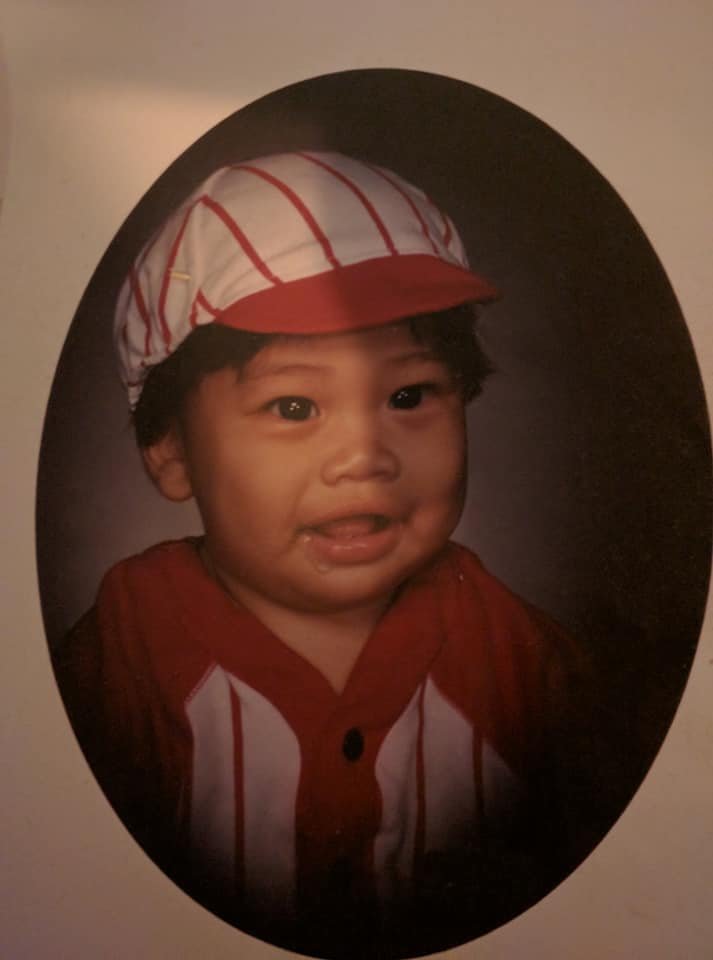Davong (David) Phrathep
Davong as a medical student
Pronouns: He/Him
Davong as a child
-
Asian American, Lao-American, first generation, brother
-
In college, I was trialing warm compresses for a family friend’s spasticity. He said that he described feeling victimized by his stroke and didn’t want to seek medical follow-up because of the barriers he experienced as a refugee from Laos. His health became my priority, and with time, I convinced him to schedule a doctor’s appointment. At this moment, I realized resiliency is changeable, and I learned the importance of encouraging patients to feel in control of their condition. His story inspires me to help patients feel empowered to be active participants in their health instead of passive recipients. He is why I decided to pursue medicine. I’m passionate about Lao-American representation in medicine and learning PM&R to help patients like him regain lifelong functional independence.
-
According to the U.S Census Bureau, 12% of Lao-Americans have a bachelor’s degree and 4% have a postgraduate degree. The AAMC reports that less than 0.02% of medical school applicants are Laotian. My challenging moment in medicine was when I read these statistics during my first year of medical school. While most people would feel a sense of uniqueness in being in the minority of applicants, I felt isolated and afraid. In this period of my life, I constantly revisited these statistics and questioned my self-worth in medicine. To add on to that, I didn’t have any Lao-American doctors to look up to, which forced me to navigate my first year of medical school alone. It was tough to think that I am and was always at a statistical disadvantage. I remember feeling a sense of imposter syndrome and telling my brothers about what I read. Initially, these statistics made me doubt my capabilities in medicine, and for my first year of medical school, I lost sight of the reason why I wanted to pursue it in the first place.
In 2022, I became one of 20 high-preforming underrepresented minority medical students accepted as a Johnson & Johnson National Medical Fellowship program. This scholarship was a 3-year service-learning and research program that helped me understand and address the structural and systemic barriers in medicine. I learned what causes the health disparities in America and why there is disproportionately affected communities of color. With time, I began to see these statistics as areas of growth, and it drove me deeper into my passion for representation in medicine. From this experience, I realized I wanted to pursue medicine because I wanted to help people and to be the role model for the youth of the Lao-American population. I wanted to become the leader and friend that I didn’t have growing up. Overcoming these obstacles have instilled resilience in me, which is why I’m sold on PM&R. I’m thankful for the support of my family, friends, and professionals that invested in me along the way and saw my vision. My journey in medicine is my way of saying thank you and paying homage to those that helped me get to this point.
-
I'm interested in this organization because I want to be an advocate for diversity, equity, and inclusion in PM&R. In Laos, family is the major source of identity and protection against the hardships of life. My parents immigrated to America with nothing and have worked tirelessly to create a better tomorrow for our family. Currently, my parents selflessly use their 401K retirement funds to finance my education because they believe that I can change the American narrative about Laotians. Because I understand how hard and isolating it is to be successful in America as the child of an immigrant family, I joined this organization to be surrounded by like-minded individuals who would help me learn how to improve PM&R access for underrepresented minorities and marginalized medical students, professionals, and patients. I plan to take the skills, knowledge, and friendships from this organization and apply them as a Physiatrist in the future to address structural and systemic barriers that prevent equity. I want to ensure that all individuals have access to the necessary care, support, and resources to achieve their highest level of functioning and quality of life.
-
Currently, I am only one of eleven Laotian medical students in the entire nation, and out of all the specialties, I’m intentionally pursuing Physiatry. My goal is to help patients maximize their resiliency and achieve their rehabilitation goals in life. I aspire to become a Physiatrist to give back to the community, especially the Lao-American population as it grows older and medical issues start to arise. Additionally, becoming a Physiatrist would be incredible because it would allow me to help inspire the next generation of Laotian medical students to show that becoming a doctor is possible, even when the odds are stacked against you.
Clinically, I am interested in human performance medicine, musculoskeletal medicine, and sports medicine. Human performance medicine is the optimization of emotional, mental, and physical well-being and performance. It is a new and innovative medical specialty that merges the goals of internal medicine, functional medicine, sports medicine, and preventative health care. During medical school, I noticed that PM&R helps patients restore function; however, because I’m naturally forward thinking, I’ve always wanted to help patients take their health to the next level once function is restored. More specifically, I want to use the principles and practices of PM&R to help patients focus on maintaining and increasing their adaptive capacity throughout life, maximize their efficiency, and improve their resistance to dependency by preventing disease or functional issues where possible.
-
Twitter: @dphrathep
Instagram : @dphrathep
Last updated 8/2023


